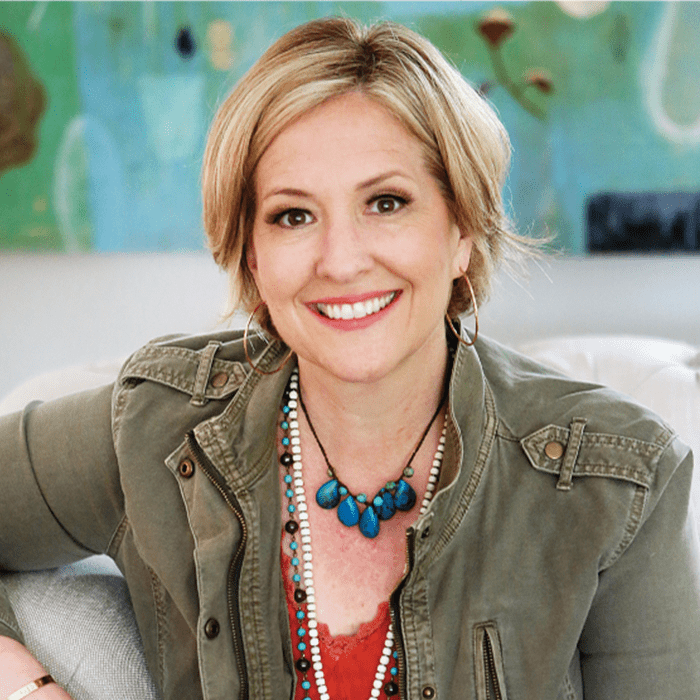THOUGHT LEADERSHIP
She’s got one of the most popular TED Talks of all time. She’s a vulnerability visionary. She’s spent nearly two decades “teaching courage.” And she’s doing it all with one mission: to make the world a braver place. Brené Brown gave NEXT Magazine some specific insights on how she’s doing it.
In your TED Talk, you describe your love of measurement. Is there a scientifically robust measuring stick for courage? If not, why is it difficult to measure?
My newest research demonstrates that courage is a collection of four skill sets (vulnerability, clarity of values, trust and rising skills) that can be taught, developed, learned, and measured. The learning requires commitment, curiosity, and a willingness to challenge ourselves both personally and professionally. It also requires operationalizing courage into actual behaviors. Where this becomes powerful is when there is a critical mass of brave leaders at an organization. We know from our work that an organization’s collective courage is the best predictor of how successfully we will operationalize and realize organizational values, learning, and strategies.

You say your ideas came from analyzing people’s stories. Are there people, living or historical, whose stories demonstrate courageous leadership? For example, one article about your ideas cites a terrific quote from Teddy Roosevelt – he lauds those who are “actually in the arena,” something TR himself was admired for. Are there others?
We define a leader as anyone who holds her/himself accountable for finding the potential in other people and developing that potential. I’ve met incredible leaders all over the world – from high school students to community activists and warehouse managers. The biggest mistake we make is believing that leadership only happens in the C-suite.
One of your 4 Pillars of Courage, “encouraging vulnerability,” builds on your TED talk assertion that vulnerability is essential to connection. But is vulnerability itself an impediment to internalizing the 4 Pillars? In a world that seems mistrustful of vulnerability in leaders, how do you get them to embrace vulnerability?
The definition of vulnerability that emerged from the data was very simple: Vulnerability is risk, uncertainty, and emotional exposure. If you want braver leaders, you must cultivate a culture where people are willing to do hard things, have difficult conversations, fail, recover, and start again. In my personal experience and in my work with leaders, you have to start by debunking the myths of vulnerability. We have to challenge the idea that vulnerability is weakness. Even when I work with the military special forces, I ask the same question: Give me one example of courageous behavior that didn’t require vulnerability. Out of tens of thousands of people, no one has ever been able to give me a single example. There is no courage without vulnerability.
You’ve famously said “stories are data with a soul,” a phrase which yields 5.5 million Google hits. You’ve created many memorable descriptions: “excruciating vulnerability” is another. Can you describe the origin of one of these?
As a Grounded Theory researcher, a central part of my research method is finding a way to name basic human processes that enables people to recognize them in themselves and also realize that everyone else can recognize them too. Rather than starting with existing theories, Grounded Theory researchers build an understanding of a concept based on people’s lived experiences.The theory emerges fully from the data collected from research participants and is then placed in the context of existing theories. One of the reasons grounded theories feel relevant to people is simply because the work is built on their experiences. Our job is to stay out of the way, keep our preconceived ideas in check, and use powerful, resonating language to make connections and conceptualize what we’ve learned.
I think one powerful example of this in my work is Daring Greatly, which became the title for one of my books and in many ways a call-to-action for all of us who are sick and tired of living in a culture of scarcity and criticism.
The phrase ‘Daring Greatly’ is originally from Theodore Roosevelt’s speech, Citizenship in a Republic. This is the passage that made the speech famous:
“It is not the critic who counts; not the man who points out how the strong man stumbles, or where the doer of deeds could have done them better. The credit belongs to the man who is actually in the arena, whose face is marred by dust and sweat and blood; who strives valiantly; who errs, who comes short again and again, because there is no effort without error and shortcoming; but who does actually strive to do the deeds; who knows great enthusiasms, the great devotions; who spends himself in a worthy cause; who at the best knows in the end the triumph of high achievement, and who at the worst, if he fails, at least fails while daring greatly.”
The first time I read this quote, I thought, “This is vulnerability! Everything I’ve learned from over a decade of research on vulnerability has taught me this exact lesson. Vulnerability is not knowing victory or defeat, it’s understanding the necessity of both; it’s engaging. It’s being all in. It’s Daring Greatly. Whether the arena is a new relationship, an important meeting, our creative process, or a difficult conversation with a colleague, we must find the courage to walk into vulnerability and engage with our whole hearts.
We live in a culture of cruelty and cynicism – it can be scary to be real. It would feel safer to be perfect or bullet proof before we walk into that arena, but as seductive as that sounds, perfection and bullet proof don’t exist in the human experience. Daring Greatly is an invitation to be courageous; to show up and let ourselves be seen. Even when there are no guarantees. That’s why I love the Teddy Roosevelt quote, because it’s such a powerful metaphor that if we’re going to go into the arena, we’re going to get our butts kicked, and we have to make a decision somewhere along the line: Is it worth the risk?
"I’ve met incredible leaders all over the world – from high school students to community activists and warehouse managers. The biggest mistake we make is believing that leadership only happens in the C-suite."
As I look at what Daring Greatly means to me, I can honestly say that nothing is as uncomfortable, dangerous and hurtful as believing that I’m standing on the outside of my life looking in and wondering what it would be like if I had the courage to show up and let myself be seen. The willingness to show up changes us. It makes us a little braver each time.
Researchers often struggle with resonant language — is this something you enjoy?
For me finding the right words can be painstaking. Maybe it’s a sophistication-in-simplicity kind of thing, but it’s laborious. I can struggle over the single right word for months. I’ve had to unlearn what I was taught in my doctoral work – that being too accessible can be dangerous to your career. In the eyes of some people, it means that you’re not smart. But I think so many people resonate with my research because I use simple language to describe things and share my own story and struggles. I know from my personal experience that these topics can be uncomfortable and painful. I am not always comfortable relating the research to my own experiences, but I think facing that fear and unwillingness and making the research more accessible can change our lives. Finding the right language that rings true for people is a basic tenet of Grounded Theory research and one that I take very seriously.
As a researcher, you wanted to “make messy topics not messy,” to bring scientific rigor to complex concepts. It was your goal following your breakdown (a “spiritual awakening” per your therapist), which you hilariously call “a Jackson Pollack crazy thing.” Sounds pretty messy! Courage is another “messy” subject – how have you made it “not messy?” What other “messy” topics would you like to tame?
I’ve probably changed my goal since then. Now I think I just want to explore the beauty of the mess and why it’s worth embracing. I’m not sure I’m a fan of taming anymore. Some things are born in the wild and should stay there. Like courage. If you try to make something brave feel comfortable, it’s really no longer courageous.
Your TED Talk is from 2010. Can you explain the process of expanding your original ideas about vulnerability and connection to encompass Daring Leadership? How did you turn your observations into actionable tactics?
I’ve set one vision for my work and, really my career and life: To make the world a braver place. Daring Leadership is a vital part of that work and developing actionable strategies and opportunities for skills development feels like an ethical imperative for a simple reason: After 16 years and thousands of interviews yielding close to 200,000 pieces of data, I don’t think we can make the world a braver place unless we change the way we work and the way we show up at work.
Specifically, organizations trying to navigate the complexities of today’s environment are looking for leaders who are:
- Staying brave and constructive in tough conversations
- Giving and receiving meaningful feedback
- Building trust in their teams
- Taking more smart risks
- Sharing bold ideas with confidence
- Resetting after setbacks
- Dealing with conflict rather than avoiding it
- Facilitating accountability rather than turning to blame or back-channeling
- Leading through uncertainty
- Putting values into practice
- Developing processes that are both thoughtful AND decisive
Here’s what I can tell you about these obstacles. You cannot go under, over or around them. You have to take them straight on and that requires courage and the capacity for vulnerability. Not just intellectual or moral courage or physical courage or emotional courage – but full contact - all of the above – all in - courage. The vulnerable kind of courage. And teaching that kind of courage is exactly what we do through our Brave Leaders Inc program.
Additional Content

ARTICLE
What Lies Beyond Operations

ARTICLE
Leading with her Unique Self







